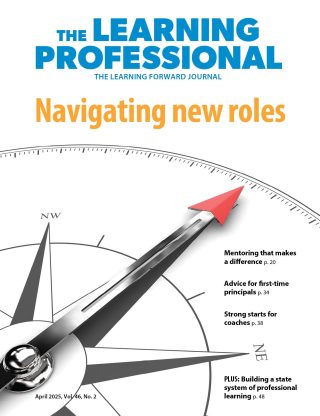IDEAS
Where are gifted students of color?
Case studies outline strategies to increase diversity in gifted programs
By Katie D. Lewis, Angela M. Novak and Christine L. Weber
August 2018
Vol. 39 No. 4
Read the remaining content with membership access. Join or log in below to continue.
Sed ut perspiciatis unde omnis iste natus error sit voluptatem accusantium doloremque laudantium, totam rem aperiam, eaque ipsa quae ab illo inventore veritatis et quasi architecto beatae vitae dicta sunt explicabo. Nemo enim ipsam voluptatem quia voluptas sit aspernatur aut odit aut fugit, sed quia consequuntur magni dolores eos qui ratione voluptatem sequi nesciunt. Neque porro quisquam est, qui dolorem ipsum quia dolor sit amet, consectetur, adipisci velit, sed quia non numquam eius modi tempora incidunt ut labore et dolore magnam aliquam quaerat voluptatem.
References
Burkman, A. (2012). Preparing novice teachers for success in elementary classrooms through professional development. Delta Kappa Gamma Bulletin, 78(3), 23-33.
Colorado Department of Education. (2010). Equity toolkit for administrators. Denver, CO
Ford, D.Y. (2014). Segregation and the underrepresentation of Blacks and Hispanics in gifted education: Social inequality and deficit paradigms. Roeper Review, 36(3), 143-154.
Ford, D.Y., Moore, J.L., & Milner, R. (2004). Beyond cultureblindness: A model of culture with implications for gifted education. Roeper Review, 27(2), 97-103.
Irby, B. & Lara-Alecio, R. (1996). Attributes of Hispanic gifted bilingual students as perceived by bilingual educators in Texas. SABE Journal, 11,120-140.
Johnsen, S.K. (2012, January). Standards in gifted education and their effects on professional competence. Gifted Child Today, 35(1), 49-57.
Lewis, K., Novak, A., & Coronado, J. (2015). Teachers’ perceptions of characteristics of gifted Hispanic bilingual students: Perspectives from the border. Texas Forum of Teacher Education, 5, 71-91.
Nelson, S.W. & Guerra, P.L. (2014). Educator beliefs and cultural knowledge: Implications for school improvement efforts. Educational Administration Quarterly, 50(1), 67-95.
No Child Left Behind Act, P.L. 107-110 (Title IX, Part A, Definition 22) (2002); 20 USC 7801(22)(2004).
Weber, C.L., Behrens, W.A., & Boswell, C. (2016). Differentiating instruction for gifted learners: A case studies approach. Waco, TX: Prufrock Press.
Weber, C.L., Boswell, C., & Behrens, W.A. (2014). Exploring critical issues in gifted education: A case studies approach. Waco, TX: Prufrock Press.
Recent Issues
LEARNING DESIGNS
February 2025
How we learn influences what we learn. This issue shares essential...
BUILDING BRIDGES
December 2024
Students benefit when educators bridge the continuum of professional...
CURRICULUM-BASED PROFESSIONAL LEARNING
October 2024
High-quality curriculum requires skilled educators to put it into...
LEARNING TO PIVOT
August 2024
Sometimes new information and situations call for major change. This issue...












